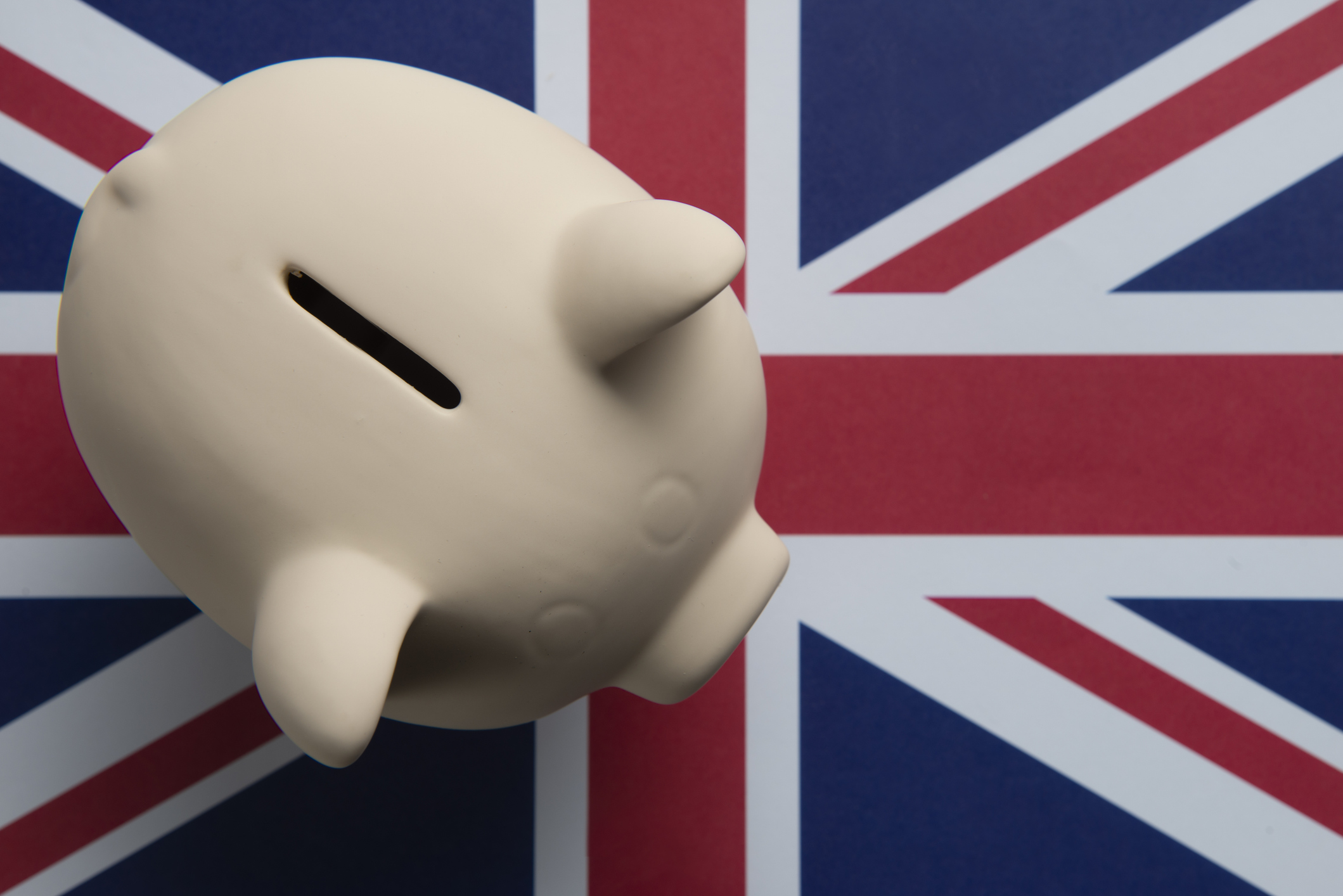Best inflation-beating savings accounts to make your money work hard
Inflation eased in January, but it’s still above the Bank of England’s 2% target. We list some of the top savings accounts in terms of rates, where your money will grow in real terms.


Get the latest financial news, insights and expert analysis from our award-winning MoneyWeek team, to help you understand what really matters when it comes to your finances.
You are now subscribed
Your newsletter sign-up was successful
Want to add more newsletters?

Twice daily
MoneyWeek
Get the latest financial news, insights and expert analysis from our award-winning MoneyWeek team, to help you understand what really matters when it comes to your finances.

Four times a week
Look After My Bills
Sign up to our free money-saving newsletter, filled with the latest news and expert advice to help you find the best tips and deals for managing your bills. Start saving today!
The rate of inflation fell to 3% in the 12 months to January, according to the latest data from the Office for National Statistics (ONS).
The sharp fall was in line with analyst expectations as price growth in the UK has continued to trend downwards despite a brief uptick over the Christmas period.
January’s disinflation was primarily driven by the transport sector and airfares in particular, where prices have dropped back down after an increase in December.
MoneyWeek
Subscribe to MoneyWeek today and get your first six magazine issues absolutely FREE

Sign up to Money Morning
Don't miss the latest investment and personal finances news, market analysis, plus money-saving tips with our free twice-daily newsletter
Don't miss the latest investment and personal finances news, market analysis, plus money-saving tips with our free twice-daily newsletter
The food and non-alcoholic beverages sector also contributed significantly to the month-on-month fall in inflation.
Most forecasters believe that price growth will continue to slow throughout 2026.
The target level of inflation in the UK (as well as in most other comparable economies) is 2%, which economic consensus says is a healthy level.
The Bank of England now believes price growth will reach this level much faster than previously thought – the central bank forecasts inflation to average 2.1% in the second quarter of 2026.
This view is shared by Deutsche Bank, which estimates that inflation will reach around the 2% target in Q2 2026.
Are your savings keeping up with inflation?
Whether inflation is at the 2% target or much higher, a level above 0% will mean your money is losing value in real terms. The only thing that changes is how fast this happens.
One way to stop your money slowly eroding in value is to put your cash into a savings account that has an interest rate above the current level of inflation.
The latest data from Moneyfacts shows the average interest rate for a savings account is 3.31%, which is higher than inflation.
Over the entire market, 1,607 savings accounts beat inflation, including 157 easy access, 147 notice accounts, 133 variable rate ISAs, 382 fixed rate ISAs and 788 fixed rate savers, according to Moneyfacts.
The data shows that the average savings account will grow your money faster than inflation – but by an incredibly slim margin.
For example, if you put your money away into a savings account with an interest rate of 3.31% in January 2025, your money will have only grown by 0.31% in real terms by January 2026.
If you want your savings to not only keep up with inflation, but actually realise significant growth you will need to put your money into a savings account with an interest rate far above the current, and projected, level of inflation.
The top easy-access savings account on the market right now is Chase’s Saver With Boosted Rate, which pays an interest rate of 4.5%, inclusive of a 2.23% boost for 12 months. It beats inflation by 1.5 percentage points.
To get the deal, you must be a new Chase current account customer and open the saver within 31 days of opening your account. You can put a maximum of £3 million into the savings account with withdrawals allowed.
Be aware that the 2.23% boost will expire after 12 months, meaning your interest rate will tumble down to just 2.27% after a year, assuming the variable underlying rate hasn't changed.
We look at the best savings accounts currently on the market which can help you beat inflation.
The below accounts are the best on the market for someone saving £10,000 and are all FSCS-protected, according to Moneyfacts.
Which are the best savings accounts to beat inflation?
Best easy-access savings accounts
Chase Saver With Boosted Rate | 4.5% | Rate includes 2.23% bonus for 12 months |
Mansfield Building Society Triple Access Bonus Saver | 4.25% | Rate includes 1.00% bonus for 12 months |
Sidekick Multi Shield | 4.23% | Rate includes 1.00% bonus for six months from £10,000 to £120,000. |
Manchester Building Society Rainy Day Saver | 4.15% | Maximum investment £1,000,000 |
Best easy-access cash ISAs
Trading 212 Cash ISA | 4.4% | Rate includes 0.8% bonus for 12 months |
Plum Cash ISA | 4.38% | Rate includes 1.84% bonus for 12 months |
Moneybox Cash ISA | 4.32% | Rate includes 0.84% bonus for 12 months |
Atom Bank Easy Access Cash ISA | 4.25% | Maximum investment £20,000 each tax year. No overall maximum. |
Best one-year fixed savings accounts
Rova Savings Vault | 4.25% |
Union Bank of India (UK) Union Premier Bond | 4.23% |
Recognise Bank Personal 1 Year Fixed Rate Account | 4.22% |
Best one-year fixed cash ISAs
AlRayan Bank Meteor Savings | 4.2% |
Isbank Meteor Savings | 4.2% |
Chetwood Bank HL Active Savings | 4.16% |
Get the latest financial news, insights and expert analysis from our award-winning MoneyWeek team, to help you understand what really matters when it comes to your finances.

Daniel is a financial journalist at MoneyWeek, writing about personal finance, economics, property, politics, and investing.
He covers savings, political news and enjoys translating economic data into simple English, and explaining what it means for your wallet.
Daniel joined MoneyWeek in January 2025. He previously worked at The Economist in their Audience team and read history at Emmanuel College, Cambridge, specialising in the history of political thought.
In his free time, he likes reading, walking around Hampstead Heath, and cooking overambitious meals.
-
 Should you get financial advice when organising care for an elderly relative?
Should you get financial advice when organising care for an elderly relative?A tiny proportion of over 45s get help planning elderly relatives’ care – but is financial advice worth the cost?
-
 Should you buy an active ETF?
Should you buy an active ETF?ETFs are often mischaracterised as passive products, but they can be a convenient way to add active management to your portfolio
-
 Brits leave £31.6 billion in savings accounts paying 1% interest or less – do you need to switch?
Brits leave £31.6 billion in savings accounts paying 1% interest or less – do you need to switch?Eight million Brits hold money in savings accounts that pay 1% interest or less, meaning the value of their cash is being eroded by inflation.
-
 Buying vs renting: is is better to own or rent your home?
Buying vs renting: is is better to own or rent your home?The higher mortgage rates of recent years have actually made renting comparatively cheaper, analysis suggests. But there are hidden costs to long term renting.
-
 Hargreaves Lansdown launches first cash ISA – how does it compare?
Hargreaves Lansdown launches first cash ISA – how does it compare?Hargreaves Lansdown is offering an own brand cash ISA for the first time with their new easy-access account. How does the interest rate compare to other products?
-
 Is Britain heading for a big debt crisis?
Is Britain heading for a big debt crisis?Opinion Things are not yet as bad as some reports have claimed. But they sure aren’t rosy either, says Julian Jessop
-
 ‘My NS&I one-year British Savings Bond is maturing – what should I do with my savings?
‘My NS&I one-year British Savings Bond is maturing – what should I do with my savings?Thousands of savers will see their fixed-rate savings accounts mature next month. We consider whether you should stick with NS&I or move to a competitor
-
 How to pay in a cheque
How to pay in a chequeReceiving or writing a cheque has become much less common in recent years as instant bank transfers have grown in popularity. Amid widespread bank branch closures, we explain what to do if you get a cheque, and how you can pay one into your bank account.
-
 ‘Current account coasters’ are leaving billions of pounds languishing in low interest accounts
‘Current account coasters’ are leaving billions of pounds languishing in low interest accountsThe average saver with £10,000 or more in their zero interest current account is missing out on over £1,500 in potential interest payments, new research has revealed.
-
 Best fixed rate cash ISAs – earn up to 4.22%
Best fixed rate cash ISAs – earn up to 4.22%We look at the best fixed rate cash ISAs on the market right now for savers who are willing to lock their cash away for guaranteed tax-free gains